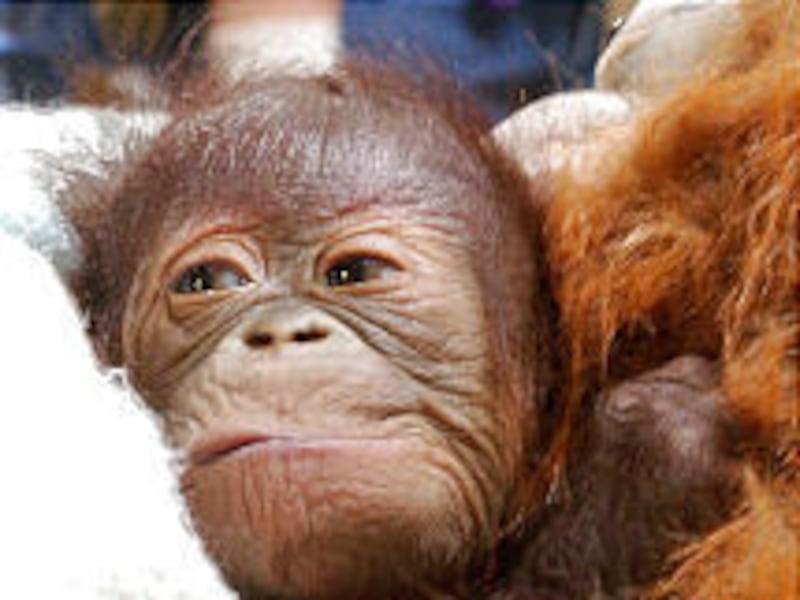Eve became a mom early on Mother's Day through Caesarean section performed by University Hospital experts — a fairly routine procedure. But the patient isn't the type of mother the doctors typically see. She's a 120-pound orangutan at Hogle Zoo.
Eve, 14, has been a resident of the zoo since 1995. The dad, a handsome ape named Elijah, is 15. Eli has been at the zoo for a year, having lived formerly at the Topeka, Kan., zoo.
"She went into labor yesterday about 12:30" in the afternoon, zoo spokeswoman Stacey Phillips said on Sunday. The ordinary labor time for an orang is about four or five hours, but the baby didn't come that soon.
Saturday evening, a veterinarian decided to assist Eve with a regular birth, but that wasn't possible. "The baby was too big for her," she said.
According to Phillips, at 120 pounds, Eve is petite for an orangutan. The baby was 3.6 pounds, good-sized for one of the species. The equivalent in human terms might be a 110-pound woman and a 9-pound baby, she said.
Hogle Zoo called in experts from University Hospital. Physicians, an assistant and an emergency room expert began a C-section in the ape house around midnight. The female baby orangutan was delivered half an hour later, early Sunday morning.
Overall, the operation took an hour and a half to two hours.
"When she was born she had a very faint heartbeat," Phillips said. "She was having problems breathing."
The team massaged the new arrival, gave her oxygen and took her to an incubator at the U. The unnamed baby spent the night there.
About 9:30 a.m. Sunday, the little ape was taken back to the zoo.
"At that point, the mom, Eve, unfortunately didn't recognize her," Phillips said. "So we're working on that bond right now."
Because the baby wasn't born the natural way, and then showed up when humans brought her, Eve did not realize it was her infant.
The zoo veterinary staff is working to reintroduce the two. Meanwhile, the baby is feeding on formula.
"We're monitoring her very closely, as well as her mom," she said.
The two are staying in an off-exhibit section, which zoo personnel call the bedroom area, where the animals go at night.
Phillips emphasized that this is still a critical time and that the mother and baby are not on display. They will not be shown to the public, she said, "for at least a few weeks."
E-mail: bau@desnews.com



